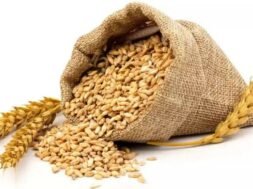
Roving Periscope: With Russia’s exit from the UN grain deal, the world faces food crisis
Virendra Pandit
New Delhi: With Russia pulling out of a Turkey-brokered deal under the United Nations’s auspices after suspected Ukrainian attacks on the Russian naval fleet in the Black Sea, many parts of the world are now bracing for a food shortage in the coming weeks and months.
Until 2021, Russia and Ukraine accounted for nearly a quarter of the world’s grain production and supplies. In particular, Ukraine was called Europe’s “bread basket.”
According to the media reports on Monday, grain traders across many countries are bracing for a fresh spike in grain prices after Russia’s exit from a July deal that permitted Ukraine’s agricultural products to pass through the Black Sea to the needy countries.
Moscow’s sudden move, using grain as a new tool against war-torn Ukraine and its allies, left leaders scrambling to rescue the UN-and-Turkey-brokered agreement which sought to save vulnerable populations from risk of starvation as a biting winter descends from November on Europe and several countries in the northern hemisphere of the planet.
The July pact had helped temper wheat futures after they skyrocketed to a record high in the wake of Russia’s invasion of Ukraine on February 24. Under the deal, Russia would inspect the Ukrainian grain-carrying ships in Turkey to ensure they did not take back western arms and ammunition on their return journey. The deal ran smoothly for three months until the Russian fleet was attacked in the Black Sea recently.
The latest grain trade setback threatens to worsen an already severe inflation and deepen a global food crisis, the reports said.
The UN, and Turkey—which despite being a NATO member is seen as pro-Russia—tried to salvage the agreement. But Russia said any next steps could only be determined after a full investigation into an attack on its naval fleet.
The two sides, alongside Ukraine, agreed to have vessels carrying food from Ukrainian ports sail on Monday, posing a challenge to Moscow and potentially dulling the impact of Russia’s withdrawal from the deal.
Trade analysts said crop futures are unlikely to climb as dramatically this time as they did in March, partly because it is already known that Ukraine will fall far short of its full output potential this year because of the ongoing, eight-month-long war.
Grain prices could now potentially rise to 10 percent soon.
Normally, many countries relied on the Black Sea region for over a quarter of the world’s annual wheat and barley exports, about a fifth of its corn cargoes and the bulk of its sunflower oil shipments.
Along with diminished exports, the early termination of the Black Sea deal puts at risk a main export route of fertilizer relied on by farmers to grow ample crops and Ukraine farmers could face a lack of storage space for wheat and corn with nowhere to go.














